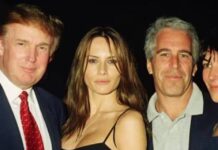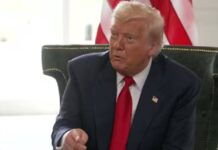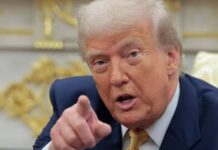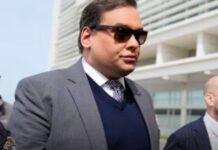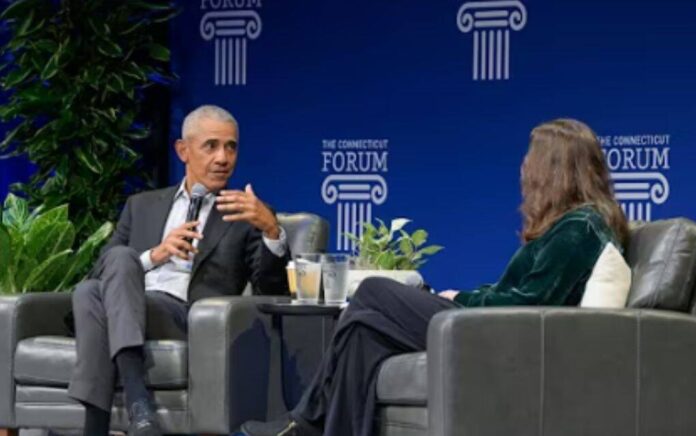
The Democrats are leaderless and wandering. Former President Obama is stepping in to give them instruction.
That’s why Barack Obama has just given his Party an insane direct order to obey.
Obama’s Fact-Checking Crusade Misses the Mark
At a recent Connecticut Forum event, former President Barack Obama took aim at what he deems a crisis of “misinformation” eroding public trust. Speaking at “An Evening with President Barack Obama,” he argued that the U.S. must regulate social media to separate facts from opinions, framing the issue as a societal peril. Yet, his selective focus on misinformation conveniently sidesteps deeper issues like political polarization, which studies suggest play a larger role in fracturing trust. Obama’s narrative, while polished, risks oversimplifying a complex problem and ignores inconvenient data that challenges his premise.
Obama painted a vivid picture of a world where factual disputes threaten civil discourse. “I’ve said this before, but I always repeat it. You and I can have an opinion about this little side table. You know, you might not like the design. You might not like the color or how it’s finished, but we can have that discussion. If I say to you this is a lawnmower, you’ll think I’m crazy,” he said. “And if I really believe it, I’ll think you’re crazy. And we’re now in a situation in which we are having these basic factual arguments. And that further undermines trust.” His analogy is folksy, but it assumes a clear line between fact and fiction that real-world data complicates.
The former president’s concern about a “disregard for facts” driving distrust is central to his argument, yet he cherry-picks his examples. He invoked Vladimir Putin, claiming, “Vladimir Putin and the KGB had a saying that was then adopted proudly by Steve Bannon, which was if you want propaganda to be effective [then] you don’t have to convince people that what you are saying is true. You just have to flood the zone with so much poop. They use a different word. But you have to flood the zone with so much untruth, constantly, that at some point people don’t believe anything.” By tying Putin to Bannon, Obama casts misinformation as a deliberate, orchestrated assault, but he sidesteps how his own party’s rhetoric has fueled skepticism.
Obama’s critique extended to political figures who bend the truth for advantage. “So it doesn’t matter if a candidate running for office just is constantly, just hypothetically, saying untrue things, or if an elected president claims that he won when he lost and that the system was rigged, but then when he wins, then it isn’t rigged, because he won. It doesn’t matter if everybody believes it. It just matters if everybody starts kind of throwing up their hands and saying ‘Well, I guess it doesn’t matter,’” he said. The veiled jab at Donald Trump is clear, but Obama glosses over Democratic inconsistencies, like claims of election irregularities in past races when it suited their narrative.
His solution? More regulation and a reimagined role for journalists and social media. “So one of the things I think, Heather, you’re doing, for those of you who don’t know her newsletter, it’s an example of, give you a little plug here. But part of what we’re going to have to do is to start experimenting with new forms of journalism and how do we use social media in ways that reaffirm facts, separate facts from opinion,” Obama said. He praised a newsletter as a model for truth-telling, but his vision of curated journalism raises questions about who gets to define “facts” and whether such gatekeeping could stifle dissent.
Obama doubled down on the need for government intervention. “That, I think, is one of the big tasks of social media. By the way, it will require some government, I believe, some government regulatory constraints around some of these business models in a way that’s consistent with the First Amendment, but that also says, look, there is a difference between these platforms letting all voices be heard versus a business model that elevates the most hateful voices or the most polarizing voices or the most dangerous, in the sense of inciting violence,” he said. His call for regulation assumes a benevolent state, ignoring how governments, including his own, have selectively wielded power to shape narratives.
Yet, Obama’s argument that misinformation is the primary culprit behind eroding trust doesn’t hold up against recent research. A 2024 Knight Foundation study, “From Trust to Disagreement: Disentangling the Interplay of Misinformation and Polarization in the News Ecosystem,” found that misinformation often receives lower trust ratings than accurate information. The study suggests that societal distrust stems less from false information and more from entrenched political divides—something Obama barely acknowledges.
A March 2025 study, “Trust in Disinformation Narratives: A Trust in the News Experiment,” further complicates Obama’s narrative. It revealed that political ideology, topic, and toxic language in news articles influence trust far more than the accuracy of the information itself. Authorship, the study noted, had little impact on credibility. These findings challenge Obama’s fixation on misinformation as the root of distrust, pointing instead to the divisive rhetoric peddled by both parties.
Obama’s selective outrage is telling. He rails against “hateful” or “polarizing” voices on social media but doesn’t address how Democratic talking points—like labeling opponents as threats to democracy—can escalate tensions. His push for regulation implies that only certain voices need taming, conveniently aligning with his ideological leanings.
The former president’s call for teaching kids to distinguish facts from opinions sounds noble but ignores how education systems often lean into ideological battles. “We want diversity of opinion. We don’t want diversity of facts. And how do we train and teach our kids to distinguish between those things?” he asked. Yet, curricula shaped by partisan priorities can blur those lines, a problem Obama sidesteps.
His Connecticut Forum remarks reveal a pattern: Obama and many Democrats frame misinformation as a one-sided threat, ignoring their own contributions to polarization. By focusing on regulating speech and curating facts, they risk alienating those who already distrust institutions. The solution isn’t less speech but more debate, even if it’s messy.
Obama closed with a challenge: “And that, I think, is going to be a big challenge for all of us that we’re going to have to undertake.” But his vision of a tightly regulated information ecosystem, guided by government and select journalists, raises more questions than it answers. Trust isn’t rebuilt by controlling the narrative—it’s earned through transparency and accountability, qualities in short supply across the political spectrum.
The Federalist Wire will keep you informed on any major news coming out of Washington, D.C.



